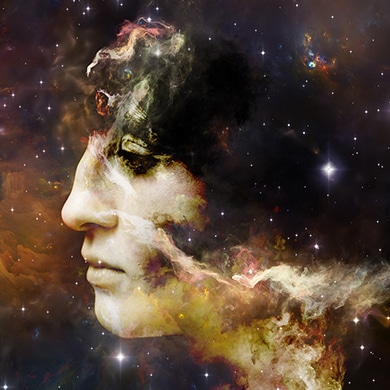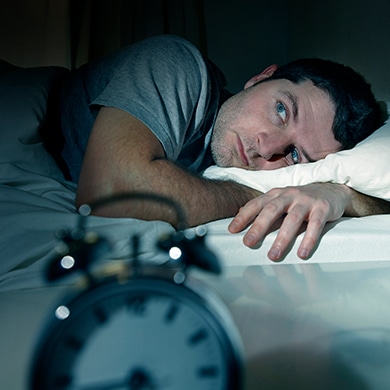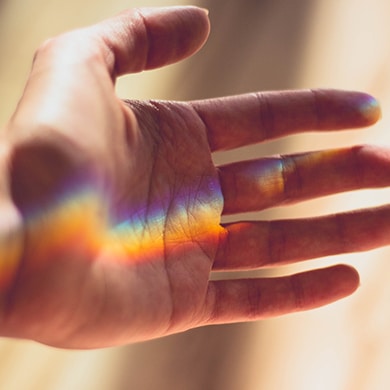

You’ve probably spent at least some time wondering about your dreams. Do you have vivid dreams? Maybe you feel like you don’t dream at all or you may not remember them? You might ask yourself: “What exactly are dreams and do they mean anything”?
Dreams have been studied so many times and it’s easy to see why. We spend a huge amount of our lives sleeping, and the things we dream can be everything from melancholy to joyful an everything in between. And according to some psychologists, getting a better handle on the nature of dreams can boost self-knowledge and aid personal growth. However, the experiences we have in our dreams can be mysterious.
There are still quite a few unanswered questions however what we do know is very interesting. This guide will look at a range of interesting scientific and psychological trivia about dreams and what they mean.
Before we take a look at some facts about dreams, let’s first find out what dreams are and why we have them.
Scientists have been trying to figure out what dreams are for a very long time, and are still researching into dreams today. What we do know is that dreams are subconscious imaginings. The imaginary normally involve sounds and images, as well as many other sensations.
They are an experience which we have in our sleep, even emotions are experienced. Dreams normally will occur during REM (rapid eye movement) sleep as this is the deepest stage of our sleep. It has also been known to happen out of REM sleep although there is not much research into this yet.
If you want to know what causes dreams, the first thing you need to understand is that people as far back as Plato and Aristotle have been theorizing about this very subject.
On some of the earliest definitions of dreams is that they were ways of the mind safely playing out subconscious desires. In contemporary research, there are still many therapists (e.g. those in the Jungian school) who adhere to this interpretation of the psychology behind dreams. By analyzing dreams, you can begin to identify your unmet needs, and discover old wounds that need healing.
Sleep studies and brain scans also indicate physiological reasons for dreaming.
For example, Professor Rosalind Cartwright (PhD) has conducted research indicating that our brains need to dream in order to process memories and organize information. As we go through our day to day life our brain picks up so many things around us, that we do not even know we process. All of these inputs, big and small, are then stored in our brain, and this theory suggests that the brain works to go through all this information in our dreams, deciding which information is worth keeping and not keeping (such as someone riding a red bike next to you, or work that you are doing).
Cartwright also suggested dreaming could be a way to deal with feelings and solve ongoing problems. It could be that our brain is processing our emotions we have experienced recently, as that is all we have to process at night. You could be worrying about losing a friend and then dream of being alone and having no friends, for example. Dreams could possibly be a reflection of our emotions, through imagery.
Neuroscientists and psychologists largely believe there is still much to learn about the meaning and purpose of dreams as a whole.
When you first hear this fact, you might think it surely doesn’t sound right… But in our dreams, the faces we see are faces that we know!
Experts insist that our brains cannot invent new faces to feature in our dreams. This means that any face we see in our dreams is necessarily one we’ve seen before. This doesn’t mean that you personally know that person. Since most of us encounter “extras” in our dreams, this information may come as a surprise.
However, consider that we constantly encounter faces that we don’t necessarily log as important. So, a newsreader on a TV segment and a stranger on a commute can feature in later dreams, and we may not recognize them as people we’ve already seen.
Most of the major players in our dreams are likely to be people we know quite well, or at least used to know. In some cases, our brains can also present a strange hybrid of people we know and those we don’t.
For example, you might believe you’re interacting with an old friend in a dream, and their personality may fit perfectly. However, when you wake you might suddenly notice that they were “played” by a person with a different face, sometimes someone you’ve only encountered in passing.

Surprisingly, not everyone dreams in color. In fact, a full 12% of sighted people will dream in black and white.
Studies which were conducted from 1915 to the 1950’s supported that a majority of dreams had been in black and white.
However, after the 1960’s the numbers did shift over to color. Further, the number of people who dream in black and white is dropping as the years' pass.
Research suggests that this could be linked to the fact that this was around the time that TV switched from black and white to color, so there may be a correlation.
Most of us associate the idea of sleep with a slowing down of the mind and body. This makes sense, given that being asleep is all about resting, recharging and getting ready for a new day. Plus, a good sleep is profoundly relaxing and refreshing, giving you the impression you’re your brain has been working
more slowly.
However, don’t assume that your mind is less activate during dreams. In fact, it’s more active then than it is when you’re awake! You can see this in the concrete data provided by sleep studies that track electrical activity in the brain.
The above fact may not make sense to you at first glance, but it has a lot to do with the variety and significance of waking life. This appears to be because your brain is busy learning from what you did over the preceding hours, processing problems that remain, and making sense of everything you’ve seen and felt during the day.
Some research hints that the brain is even more active during sleep when you’ve had a novel experience in the last 24 hours, or when you’ve been through a major change of some sort, whether positive or negative.

Have you ever noticed that when your pet is asleep, they sometimes make noises, or twitch their paws as though they are running? This is because animals also dream!
Studies have been conducted which showed that when animals are in the REM stage of sleep, they all show the same brain waves as we do when we are dreaming. The studies have included chimps, dolphins, dogs, and cats. It’s fair to speculate that most mammals (at the very least) dream, just like we do.
This means that they can also be unsettled by their experiences of dreams. So, keep an eye on your pet after sleep to make sure they aren’t feeling out of sorts after a nightmare. We can all relate to that feeling of discomfort and disorientation after a dream!
It’s not only people who can see that can dream. Blind people can also dream.
Those who had become blind after birth can still see in their dreams, however, those who have been born blind cannot see in their dreams. Those who cannot see in their dreams, still experience dreams in a different way: through smell, sound, touch and other senses.

Now, if you’re like most people, you’ve probably wondered “What do dreams mean when you dream about someone specific?”.
As mentioned at the outset, there’s still a prominent school of thought according to which dreaming of someone or something can tell you something useful about how you feel, and about what you want from life. So, what does it mean when you dream of someone repeatedly?
Psychological facts about dreams of someone suggest that it can indicate a range of things.
In some cases, you repeatedly dream about someone because you care a lot about them and have some kind of unresolved issue with them.
This could be a romantic interest, or it could be about losing touch with an old friend. It could just as easily indicate an ongoing conflict under the surface of your dynamic with a family member.
Everyone has dreams when they sleep, it’s just that a lot of us don’t remember them when we wake up. It is simply not easy to hold onto the bulk of the content of your dreams.
Up to 60% of people do not remember their dreams at all, especially after the first 5 minutes of waking up. In addition, for the average person, 90% of the details from dreams have vanished within a mere ten minutes. This means you can really only remember a fraction of your dreams.
The exception to this is if something ways you during the rapid eye movement stage of your dreams (i.e. REM sleep). When this happens, you’re typically more capable of recalling dream information. The downside is that you will also feel startled, and will miss out on one of the most important, healing parts of the sleep process!
Of course, dreams are also more likely to stick with you if they repeat or have emotional resonance. However, if you have a general interest in remembering dreams, try keeping a notepad by your bed and noting down an outline as soon as you wake. This means you can regularly come back to your dreams and see if you notice overlapping themes or can figure out any potential messages from your subconscious mind.

Sleep paralysis is where you have a temporary inability to move or speak. This can occur either when you are waking up or when you are falling asleep.
Most people will experience sleep paralysis once or twice in their life, whilst others can experience it more regularly.
Sleep paralysis does not feel like you are in a dream, it feels real.
Some people have said that during their experience, they feel a sensation that someone or something is in the room with them.
Sleep Paralysis normally lasts from a few seconds to several minutes.
There have been some cases where people have claimed to have dreamt things that turned out to actually happen later. Some say it is coincidence, while others say they can see the future and experience premonitions.
The cases recorded include: Abraham Lincoln dreaming of his assassination, many victims of the 9/11 had dreams warning them, and there have also been 19 verified precognitive dreams about the Titanic, to name a few.
Sleepwalking is known as an extreme form of REM sleep disorder. For some, sleepwalking can be mild and for others, more serious. Some cases could be where you walk around your room or talk to others, whilst sleeping.
However, there have been cases where people have left their homes, or drawn gorgeous paintings that they cannot paint when they are awake.
You may have thought that apart from any subconscious messages they contain, dreams must be quite useless. Not so!

They can actually improve your performance in seemingly unrelated areas of your everyday life. According to research reported by the American Psychological Society on the psychology of dreams, they work wonders for your creative faculties in particular. If you’re an artist, you might have already spotted this, but the type of creativity we’re talking about here also applies to things like creative problem-solving.
Apparently, this is because the process of dreaming is a lot like using your imagination to be creative. When your brain analyses and tackles problems during your sleep, it's activity parallels that witnessed when you’re being creative in waking life. This means that no matter what your preferred artistic mode of expression might be, you’re likely to be better at it after a night of vivid dreaming.
And, as a bonus, you may find direct inspiration in your dreams. For example, if you dream about a fantastical scenario, go through a challenging experience or revisit a moving aspect of your past, this can help you “tune into” the types of intense emotions that boost creative output.
When women dream there are normally an almost equal amount of both men and women that are involved in their dreams. However, for men, around 70% of the people in their dreams are other men.
As well as this, men have been known to have more aggressive dreams than women too. Women also tend to have slighter longer dreams.
Research has found that most dreams include negative emotions. 50% of all dreams are normally negative. In a study that was conducted, the common emotions that people experienced during their dreams were sadness, anger, fear, and anxiety.
Take a look at our article on 10 dreams that people have often and what they could mean, to see what your dreams might be about.

